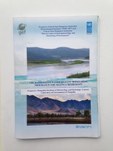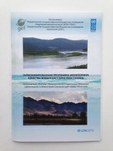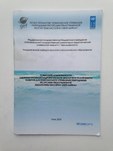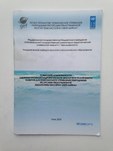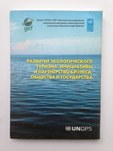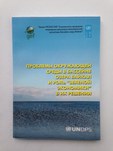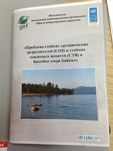Publications
In 2013 the Baikal Project has prepared and printed several booklets and brochures.
| Title | Author | |
|
The Harmonized Water Quality Monitoring Program in the Selenga River Basin The program integrates Russian and Mongolian approaches of a measurement system water quality control. List of methods of physical-chemical analysis and technical tools are agreed and recommended for stationary and movable Selenga River Basin laboratories in both countries. At list 13 of data parameters jointly were monitored by the two countries across the Baikal Basin. About 30 parameters were harmonized
|
Federal State Budgetary Institution “Hydrochemical Institute” (FSBI “HI”) and Federal State Budgetary Institution “Buryat Center of Hydrometeorology and Monitoring of Environment” |
In English |
| The Harmonized Water Quality Monitoring Program in the Selenga River Basin | Federal State Budgetary Institution “Hydrochemical Institute” (FSBI “HI”) and Federal State Budgetary Institution “Buryat Center of Hydrometeorology and Monitoring of Environment” |
In Russian |
| The Harmonized Water Quality Monitoring Program in the Selenga River Basin | Federal State Budgetary Institution “Hydrochemical Institute” (FSBI “HI”) and Federal State Budgetary Institution “Buryat Center of Hydrometeorology and Monitoring of Environment” |
In Mongolian |
|
Ecological enhancement plan in the Baikal region This brochure contains a road map of environmental education enhancement till 2015 at different levels (preschool, school, college education). It is recommended for replication and introduction in regions of the Baikal district.
|
Moscow State University |
In Russian |
|
This manual contains a methodology of upgrading of competency of administrative staff in the field of ecology. Sustainable development was proposed and corresponding academic manuals were developed. The manual is recommended for replication and introduction in regions of the Baikal district.
|
Zabaikalsky State Pedagogical University |
In Russian |
|
Eco-tourism development: initiatives of business, society and government The round table "Development of eco-tourism: initiatives and partnership of business, society and government" was organized by the Baikal Project as a part of the International forum «Eco-tourism on Lake Baikal +20». The Project invited several international consultants from European Protected Areas with a wide experience in eco-tourism. More than 100 participants from Russia and Mongolia took part in the roundtable discussion. The book “Eco-tourism development: initiatives of business, society and government” was prepared, printed and distributed among participants.
|
Baikal Institute of Nature Management of Russian Academy of Sciences |
In Russian |
|
Recommendations for changes EIA process in Russian This brochure includes: 1) Recommendations for changes in local and national policies, legislation and regional development plans to enhance biodiversity protection in mining and tourism sector 2) Recommendations for EIA process in mining and tourism sector to make it more biodiversity relevant and focused.
|
Gunin Pert Dmitrievich and Bazha Sergey Nikolaevich |
In Russian |
|
The role of green economy in the Baikal Basin in Russian The seminar “Environmental problems of Lake Baikal Basin and role of green economy in their solving” was held on July 30 – August 02, 2013. Basin-specific National Capacity Self -Assessments were carried out and used to identify highest priority training and management support at the regional and basin level. This seminar was supported by the Baikal Project and organized for specialists of Ministry of Natural Resources of Buryatia and Ministry of Environment and Green Development of Mongolia. This brochure contains practical recommendations for consolidation of state, society and business efforts for mutual solving of ecological problems and rising of ecological security of nature resources use. |
Baikal Institute of Nature Management of Russian Academy of Sciences |
In Russian |
|
POPs/PTSs problem in the Baikal Basin A study guide in Russian and Mongolian was developed for rising awareness and improvement in management of stakeholders in Persistent Toxic Substances (PTS) and Persistent Organic Pollutants (POPs). The study guide considered Baikal Basin POP and PTS data, including their production, use in industry and agriculture, as well as data about abandoned warehouses with expired pesticides.
|
Center of International Projects |
In Russian |
| POPs/PTSs problem in the Baikal Basin | Center of International Projects and Bayarjargal Munkhuu | In Mongolian |

